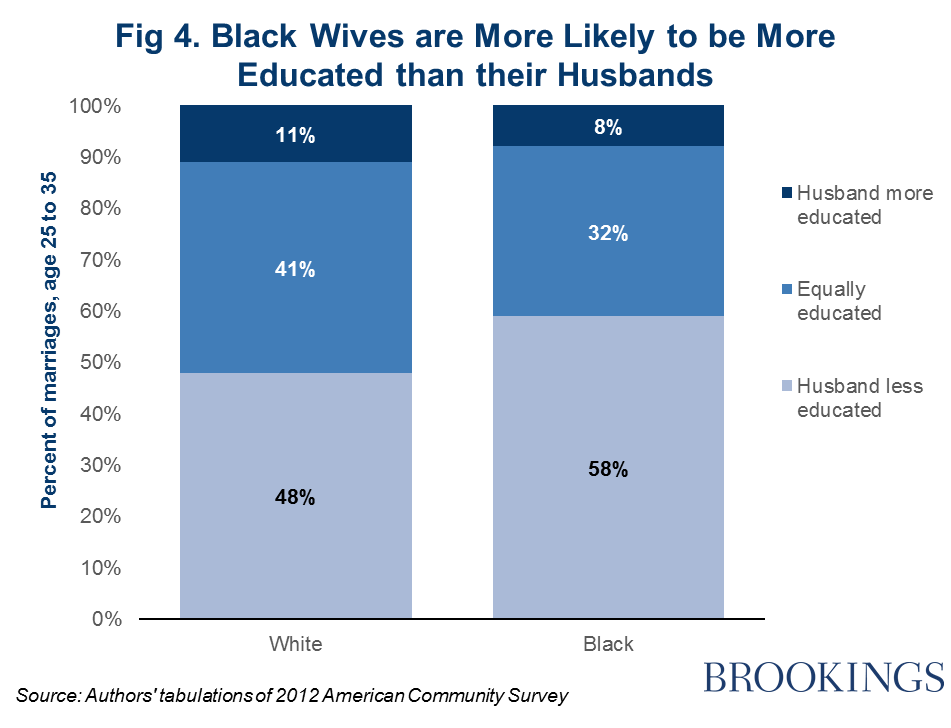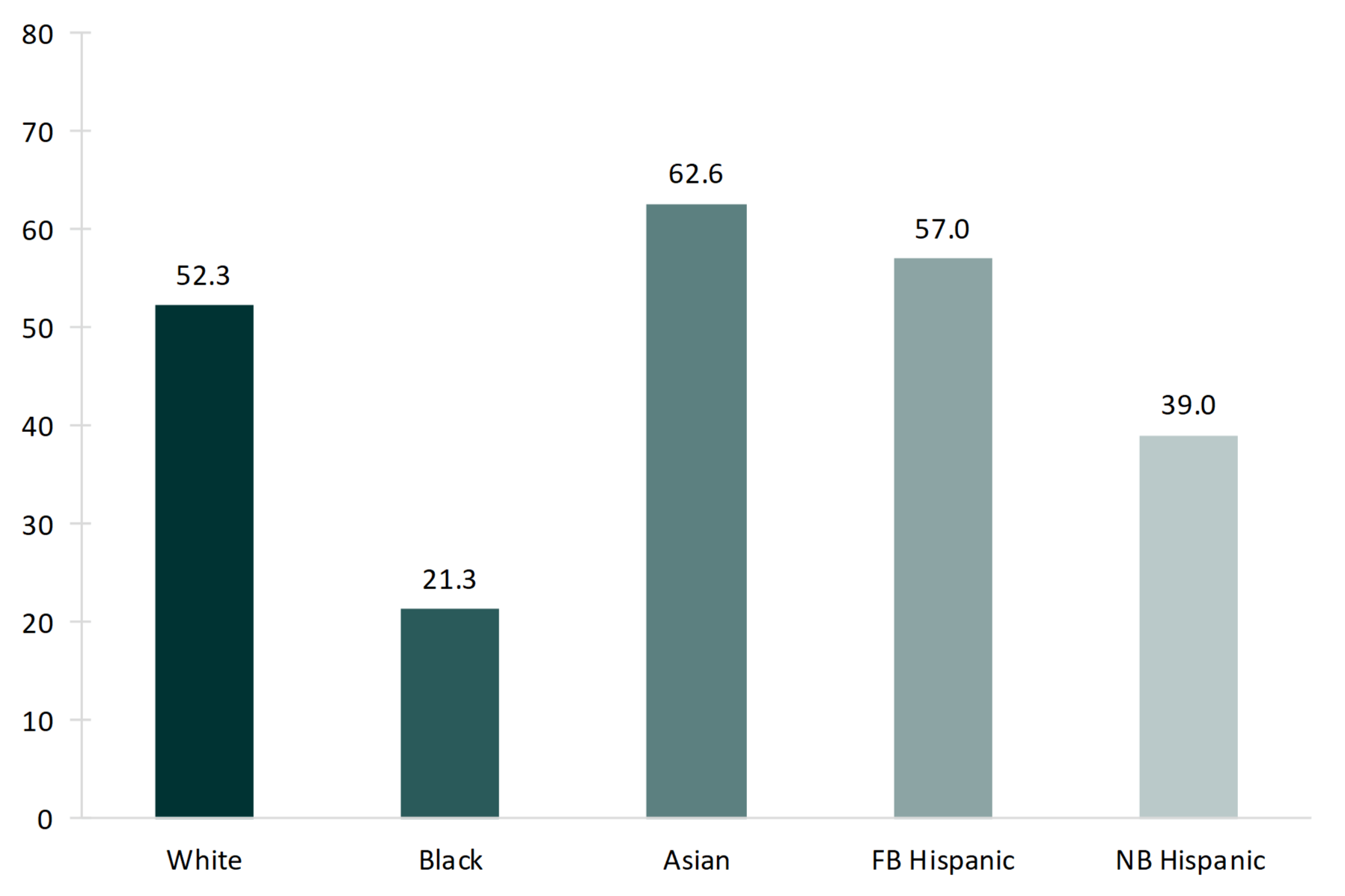black women can date blue collar black men instead of holding out for the rich ones...just a thought
The article is about MIDDLE CLASS Black men and women. The very blue collar workers your talking about.
By Joy L. Hightower | April 25, 2016
In 2009, Linsey Davis, a Black female correspondent for the ABC News, wrote a feature article for Nightline. She had one question: “Why are successful Black women the least likely than any other race or gender to marry?” Her story went viral, sparking a national debate. Within the year, social media, newsrooms, self-help books, Black television shows and films were ablaze with commentary that interrogated the increasing trend of never married, middle-class Black women. The conclusions of this debate were elusive at best, mostly muddled by different opinions about the conflicting relationship desires of Black women and Black men.
But the debate made one thing clear: the controversy about the declining rates of Black marriage is a middle-class issue, and, more specifically, a problem for Black women. Middle-class Black men only enter as a specter of Black women’s singleness; their voices are largely muted in the conversation.
This opinion piece challenges the gendered media portrayal by foregrounding the neglected perspectives of middle-class Black men that are drowned out by the hysteria that surrounds professional Black women’s singleness.[1] I argue that when middle-class men enter the debate, they do so much in the same way as their lower-class brethren: their failure to marry Black women. Middle-class and lower-class Black men alike have suffered a rhetorical death. A popular 2015 New York Times article proclaims “1.5 million Black men are ‘missing’” from everyday lived experiences due to incarceration, homicide, and HIV-related deaths.
This pervasive explanation of Black men’s “disappearance” knows no class variation. Despite changing social mores regarding later marriage entry across social groups, middle-class Black men are described as “missing” from the marriage markets of Black women. In this way, media narratives link the strength of Black men to their marriageability.
Black men’s relationship decisions—when and whom they marry—have been singled out as the cause of declining Black marriage rates. Black men’s higher rates of interracial marriage are linked to the “new marriage squeeze,” (Crowder and Tolnay 2000), which identifies the difficulty for professional Black women who seek to marry Black men of the same ilk. Because of this “squeeze,” in his book, “Is Marriage for White People?”, Stanford Law Professor Richard Banks (2011) recommends that middle-class Black women should emulate middle-class Black men who allegedly marry outside of their race. Such a suggestion prods at one of the most-debated cultural insecurities of Black America, namely, the angst regarding Black men’s patterns of interracial relationships.
Indeed, it is true, middle-class Black men marry outside their race, and do so twice as often as Black women. However, this statistic fails to take into account that the majority of middle-class Black men marry Black women. Eighty-five percent of college-educated Black men are married to Black women, and nearly the same percent of married Black men with salaries over $100,000 are married to Black women.
Black women are not “All the Single Ladies” despite attempts to make the two groups synonymous.
The media’s perpetuation of dismal statistical trends about Black marriage obscures the entangled roots of white racism, namely, its production of intra-racial quarrels as a mechanism of control. For example, the riveting 2009 finding that 42% of Black women are unmarried made its media rounds while mysteriously unaccompanied by the similar 2010 statistic that 48% of Black men have never been married. This “finding” also dismissed the fact that both Black men and Black women marry, though later in the lifecycle. But, it is no coincidence that this rhetoric pits Black men and Black women against one another; it is centuries-old plantation logic that now permeates contemporary media narratives about Black intimacy.
.GIF)

 drop a link to this kind sir.
drop a link to this kind sir. I guess it’s all on black women. Because men are just dying to get married. There are tons of reasons why people don’t get married beyond being bad at choosing partners the BIGGEST reason is that the partner could be a good one but just doesn’t want to get married. It’s crazy how so many of you guys on here are completely against marriage, or want to wait decades to get married but some how black women are supposed still be married by a certain age or even at all. Who are they supposed to marry if the men don’t want to get married?
I guess it’s all on black women. Because men are just dying to get married. There are tons of reasons why people don’t get married beyond being bad at choosing partners the BIGGEST reason is that the partner could be a good one but just doesn’t want to get married. It’s crazy how so many of you guys on here are completely against marriage, or want to wait decades to get married but some how black women are supposed still be married by a certain age or even at all. Who are they supposed to marry if the men don’t want to get married?


